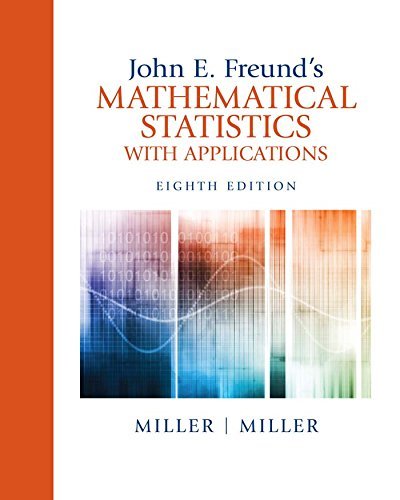If you’re searching for the best mathematical statistics book, you’re in the right place. Among the countless options, one stands out for its clarity and depth. This book not only covers essential concepts but makes them understandable. Whether you’re a student or a professional, it serves as an indispensable resource. Dive into the world of mathematical statistics with this top recommendation.
Best Mathematical Statistics Book: A Comprehensive Guide
When it comes to understanding the intricate world of mathematical statistics, having a reliable and informative book is crucial. Whether you’re a student, a professional, or someone with a keen interest in statistics, finding the best book can make a significant difference in your learning journey. In this guide, we’ll look at some of the top books that cover various aspects of mathematical statistics, as well as explore some of the best books for schools to support your educational needs, ensuring you have the right resources at your fingertips.
Introduction to Mathematical Statistics
A foundational book in this field is “Introduction to Mathematical Statistics” by Robert V. Hogg, Joseph McKean, and Allen T. Craig. This book is often recommended for its clear explanations and thorough coverage of statistical theory.
– Detailed introduction to probability theory
– Comprehensive coverage of statistical inference
– Real-world examples that illustrate statistical concepts
This book is widely used in university courses and is praised for making complex topics accessible. It provides a balance between theory and application, making it a great starting point for anyone new to the subject.
Statistical Inference
Another significant book is “Statistical Inference” by George Casella and Roger L. Berger. This book is renowned for its rigorous approach and depth of content.
– In-depth coverage of estimation and hypothesis testing
– Clear explanations of methods like maximum likelihood and Bayesian inference
– Numerous exercises to reinforce learning
If you’re looking for a book that delves deeply into the theoretical aspects of statistics, this is an excellent choice. It is often used in graduate-level courses and by professionals seeking a deeper understanding of statistical methods.
Applied Statistics and Probability for Engineers
For those in engineering and applied sciences, “Applied Statistics and Probability for Engineers” by Douglas C. Montgomery and George C. Runger is highly recommended.
– Focus on practical application of statistical methods
– Examples and case studies relevant to engineering and technology
– Clear, step-by-step explanations
This book is particularly valuable for its practical approach, making statistical concepts more relatable and easier to understand in the context of engineering problems.
All of Statistics: A Concise Course in Statistical Inference
Larry Wasserman’s “All of Statistics: A Concise Course in Statistical Inference” offers a broad overview of the field, aiming to cover a lot of ground in a concise manner.
– Comprehensive coverage of various statistical methods
– MATLAB code to implement statistical techniques
– Focus on both theoretical and computational aspects
This book is perfect for those who want a quick yet thorough introduction to statistical methods and are comfortable with using software to aid their understanding.
Modern Mathematical Statistics with Applications
“Modern Mathematical Statistics with Applications” by Jay L. Devore and Kenneth N. Berk is another highly regarded book in this field.
– Blend of classical and modern statistical methods
– Emphasis on applications and real-world examples
– Accessible writing style suitable for beginners
This book stands out for its balance between theory and practical application, making it suitable for both students and practitioners.
Statistics for Mathematicians: A Rigorous First Course
If you are seeking a more rigorous approach, “Statistics for Mathematicians: A Rigorous First Course” by Victor B. Panaretos provides a deep dive into statistical theory.
– Detailed coverage of probability and statistics
– Rigorous mathematical approach
– Challenging exercises to test understanding
This book is best suited for those with a strong mathematical background who are looking for a challenging and detailed study of statistics.
The Elements of Statistical Learning
For those interested in machine learning and data mining, “The Elements of Statistical Learning” by Trevor Hastie, Robert Tibshirani, and Jerome Friedman is a seminal work.
– Comprehensive coverage of machine learning algorithms
– Emphasis on statistical principles behind learning methods
– Numerous examples and illustrations
This book is invaluable for anyone looking to understand the statistical foundations of machine learning, with a wealth of information on various algorithms and their applications.
Probability and Statistics for Engineering and the Sciences
Jay L. Devore’s “Probability and Statistics for Engineering and the Sciences” is another essential book, particularly for those in scientific fields.
– Clear and concise explanations
– Emphasis on applications in engineering and science
– Numerous examples and exercises
This book helps bridge the gap between theory and practice, making it a great resource for students and professionals alike.
Choosing the Right Book for You
Selecting the best book for your needs can depend on several factors, such as your background, learning style, and specific interests. Here are a few tips to help you choose:
- Evaluate Your Background: If you’re new to the subject, start with a book that offers clear explanations and introductory material. “Introduction to Mathematical Statistics” is a good choice for beginners.
- Consider Your Goals: Are you looking to understand the theoretical aspects of statistics or its practical applications? Books like “Statistical Inference” focus on theory, while “Applied Statistics and Probability for Engineers” emphasizes practical use.
- Look for Supplemental Material: Some books come with additional resources, such as software codes or online exercises. These can be incredibly helpful in reinforcing your learning.
- Check Reviews and Recommendations: Reading reviews and getting recommendations from professors or colleagues can provide useful insights into which books have helped others in similar situations.
Choosing the right book on mathematical statistics can significantly impact your understanding and application of statistical concepts. Whether you’re a beginner or an advanced learner, there’s a book out there that can meet your needs. From foundational texts like “Introduction to Mathematical Statistics” to more specialized books such as “The Elements of Statistical Learning,” you have a wealth of resources at your disposal. Consider your background, goals, and learning style to find the book that best suits you, and embark on your journey into the fascinating world of mathematical statistics.
Frequently Asked Questions
What features should I look for in a good mathematical statistics book?
When selecting a mathematical statistics book, look for comprehensive coverage of fundamental topics such as probability theory, statistical inference, estimation, and hypothesis testing. A good book should also include a variety of examples and exercises to reinforce concepts. Clear explanations, step-by-step derivations, and practical applications are essential. Additionally, check for an accessible writing style and any supplemental resources such as solution manuals or online materials.
Can a beginner easily understand a mathematical statistics book?
Some mathematical statistics books cater specifically to beginners, providing foundational concepts in an accessible manner. These books often start with basic probability and gradually introduce more complex topics. Look for books that assume minimal prior knowledge and include numerous examples, diagrams, and exercises designed to build understanding progressively. Reading reviews or seeking recommendations from educators can help find a suitable book for beginners.
Are there any recommended authors for mathematical statistics books?
Several authors are renowned for their contributions to mathematical statistics. Some highly recommended authors include John A. Rice, whose book “Mathematical Statistics and Data Analysis” is well-regarded. Another notable author is Robert V. Hogg, known for the book “Introduction to Mathematical Statistics.” Other respected authors include Sheldon M. Ross and William Feller, both of whom have written extensively on probability and statistics.
How important are exercises in a mathematical statistics book?
Exercises are crucial in a mathematical statistics book because they reinforce learning and help students apply theoretical concepts to practical problems. Working through exercises improves problem-solving skills and deepens understanding. A good book should offer a range of problems, from simple to challenging, with solutions or guidance to aid in self-study. Exercises that cover real-life applications can also enhance the learning experience.
Should I consider the edition of the book when choosing one?
Yes, the edition of a book can be important. Newer editions often include updated content, more refined explanations, additional exercises, and corrections of any errors found in previous editions. They may also incorporate recent advancements in the field. However, earlier editions might be sufficient depending on your needs and can often be less expensive. Check the differences between editions to make an informed choice.
Final Thoughts
For anyone looking to strengthen their grasp on mathematical statistics, “Mathematical Statistics with Applications” by Wackerly, Mendenhall, and Scheaffer stands out. This book offers clear explanations and numerous examples, making complex topics more approachable. It balances theory and practical application seamlessly, catering to both beginners and advanced learners. The text is well-organized, which facilitates easy navigation and understanding. Ultimately, “Mathematical Statistics with Applications” remains the best mathematical statistics book for students and professionals alike.

